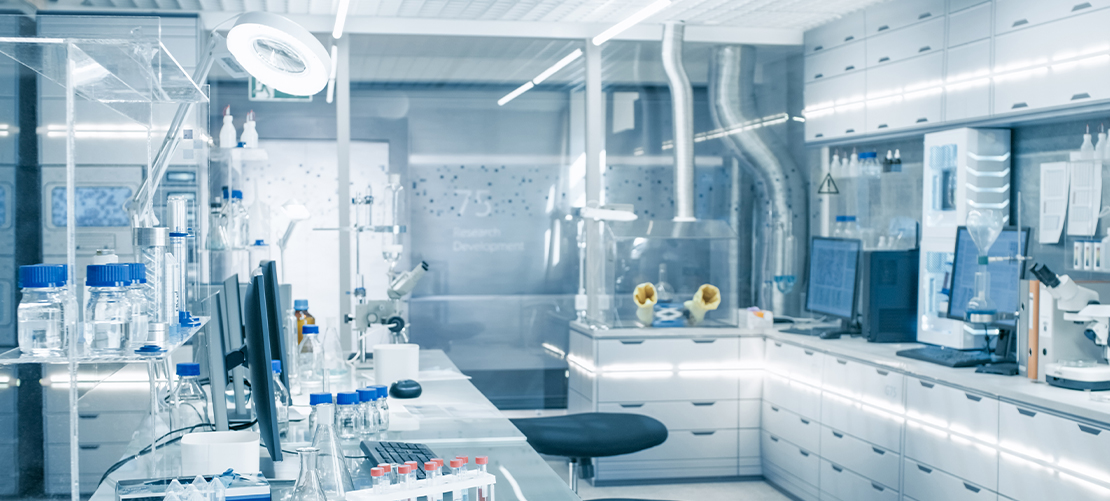Life sciences A to Z – M is for Manufacturing: Is insourcing the new outsourcing?

The Novo-Catalent deal
On 5 February 2024, it was announced1 that Novo Holdings, Novo Nordisk's holding company, would acquire Catalent, one of the world's largest and most advanced contract development and manufacturing organisations (CDMO), for $16.5 billion. The announcement outlined plans for Novo Holdings to sell three of Catalent's fill-finish sites to Novo Nordisk for $11 billion to strengthen its manufacturing capabilities as it struggles to meet the unprecedented demand for its weight-loss drug, Wegovy and its diabetes drug, Ozempic. The success of these drugs has resulted in Novo Nordisk's market value reaching $500 billion in 2023, briefly becoming Europe's most valuable company, pipping France's luxury conglomerate, LVMH, to the post2.
Catalent is an equally significant player in the industry, marketed as the largest gene therapy CDMO in the world and one of the only CDMOs with commercial experience in manufacturing some of the most complex products. Catalent has several influential customers on its books including Moderna, AstraZeneca, Sarepta Therapeutics and Novo Nordisk itself. Despite its expertise in manufacturing close to 70 billion doses of 8,000 products annually at over 50 global sites, it has recently come under scrutiny by the FDA for multiple quality-related violations. Some suggested that these misdemeanours may have influenced Novo Nordisk's decision to purchase the CDMO, as it seeks greater control and oversight over the manufacturing of its most valuable products, Wegovy and Ozempic.
This deal has sparked considerable debate within the industry as Novo Nordisk bucks the outsourcing trend which pervades the industry. Could Novo Nordisk's insourcing of its manufacturing capabilities lead to a surprising shift within the industry?
Outsourcing trends in the pharmaceutical industry
It is important to remind ourselves why outsourcing manufacturing activities has become so popular in recent years. The outsourcing trend was catalysed by the Covid-19 pandemic when supply chains were significantly challenged by unprecedented demand. The response across the industry was to diversify the use of CDMOs to hedge risk and to create greater flexibility. In 2023, over 60% of biopharmaceutical companies were outsourcing at least some activity with the most common being analytical testing, validation services and toxicity testing. It is predicted that this outsourcing craze will continue to grow considerably over the next 2 years with a growth in outsourcing more primary activities such as API biologics manufacturing and cell line development.3 Despite the Novo/Catalent deal, the figures suggest there is no sign of the outsourcing phase slowing down.
In our experience, pharmaceutical outsourcing is an attractive structure for a multitude of reasons, including:
- Time: Partnering with CDMOs can help streamline processes, eliminate bottlenecks, provide access to advanced technologies and reduce development cycles. Successful drug development is always a race against time, so any time-saving measures are hugely valued in the industry.
- Risk: Outsourcing is a form of risk sharing between trusted partners, not only from an operational perspective but also from a legal and financial perspective.
- Cost: Pharmaceutical outsourcing has the potential to reduce costs, particularly with regions such as India and China being able to offer high-quality services at a lower cost. Outsourcing can also reduce the need for immediate capital expenditure.
- Strategic: Many companies view their outsourcing partner as a trusted ally as opposed to a pure vendor-buyer relationship. This can result in process improvements, stable business relationships and a reduction in overall business risks.
Given the numerous benefits, it seems unlikely that Novo Nordisk's decision to insource its manufacturing capabilities will totally reverse the current outsourcing trend. That said, the deal is clearly a significant milestone for the industry and will likely spur some movement in the manufacturing space. We consider the potential impact for customers and CDMOs in more detail below.
How will the deal impact CDMOs?
- Increased demand for CDMO services: CDMOs may see an opportunity to increase capacity, facilities and skillsets to replace the capacity which Catalent previously offered to the market. There may also be anxious Catalent customers looking for alternative CDMOs, although Novo Holdings has said that it will honour all existing customer contracts.
- Gap in the market: New CDMOs may emerge as they see a gap in the market for providing services to a desperate customer population. Considering Catalent's dominant position in the gene therapy space, there may be a shortage of resource in this space if Catalent's facilities become absorbed into the Novo Holdings' business. It is not yet clear whether Novo Holdings will, in the long term, use all Catalent facilities for its own manufacturing or whether it will offer capacity to other customers.
- Similar acquisitions: Some CDMOs may position themselves for similar acquisitions by Big Pharma. In a similar manner to emerging biotech companies acquired by Big Pharma so perhaps there will be a similar approach taken by emerging, innovative CDMOs who are looking for the funding and marketing muscle offered by large pharmaceutical companies.
The general view across the industry seems to be that this type of acquisition is unlikely to be a trend. Catalent was underperforming and Novo Nordisk did not have time to lose. It arguably made perfect sense for Novo Nordisk (who had the funds) to take control of something so significant for the success of its blockbuster product. Tim Opler, Managing Director at Stifel's Global Healthcare Group, saw this deal as a no-brainer for Novo Nordisk, saying "An example outside the biopharma industry would be Coca-Cola buying their bottlers over time. The company that is making the most money out of a piece of intellectual property will naturally further integrate its process".4
How will the deal impact customers?
Catalent customers may consider their options:
- Competitive products: Customers developing or manufacturing products with Catalent which are competitive to Novo Nordisk's products will be forced to immediately reconsider their manufacturing partner. It is likely that there will be greater scrutiny on Catalent's performance post-acquisition. Eli Lilly, a key competitor of Novo Nordisk's obesity and diabetes drugs, has its own competing products manufactured at Catalent and has publicly announced that it expects strict compliance from Catalent with its contractual obligations after the acquisition. In the last week, Eli Lilly has announced a $5.3 billion investment in its own manufacturing facilities in Indiana.
- Market competitor: For Catalent customers in adjacent markets, Catalent will be owned by a specific competitor which creates greater risk and reliance on a competitor. These companies are now effectively subsidising development for Novo Nordisk with their CDMO service fees. Some may consider that this puts them in a weak commercial position and consider alternatives.
- Transition: It is likely that customers utilizing the three sites being transferred to Novo Nordisk will seek to understand what components of the process need to go elsewhere and where that should be. The overall drug manufacturing market, particularly for more complex biologics products, is already constrained so it may be difficult for those customers to facilitate a smooth transition.
- Review of Catalent as provider: Those customers that utilize Catalent for its broad range of services will likely conduct a strategic review to confirm whether it is still in the best interest of their patients and organisations to continue to use those services. This may not necessarily mean a negative shift in demand. For many, the review may be abundantly positive due to greater investments by a new, deep-pocketed parent company.
Other customers:
There may well be an increase in market activity as customers previously considering Catalent look elsewhere for manufacturing services. Customers may also put greater emphasis on contractual flexibility with CDMOs, in particular to ensure that they are protected in the event of any CDMO restructure.
Will insourcing be the new outsourcing?
In our opinion, this is unlikely. Insourcing manufacturing capabilities within the industry is a long way off overtaking outsourcing as the popular default. The Novo-Catalent merger has all the signs of a one-off deal and has been shaped by unique and specific circumstances on both sides. Outsourcing has and continues to offer drug developers significant benefits and we don't envisage those benefits going anywhere in the current market conditions. It is however important to note that, given the size and influence of Catalent and Novo Nordisk, the deal is likely to see some consequential shifts in the industry.
Customers will be looking for even greater flexibility in their contracts with CDMOs to allow them to mitigate the risk of any potential restructuring or change of ownership. Catalent customers will be ready to scrutinise contractual and quality compliance by Catalent post-acquisition and we may even see an uptick in claims. Given Catalent's recent failings in quality, customers will want greater reassurance from Novo Nordisk that it is able to meet the high standards customers expect in the provision of these services. Further, the deal seems likely to increase opportunities for other CDMOs now that one of the key players has left the market.
Final remarks
Whilst innovation and AI continue to dominate the headlines as a key driver of revenue for the pharmaceutical industry, this deal serves as an important reminder that physical manufacturing capabilities remain to be one of the most fundamental elements of any successful drug launch.
3 20th Annual Report and Survey of Biopharmaceutical Capacity and Production, BioPlan Associates, Inc. April 2023, Rockville, MD, USA, www.bioplanassociates.com


